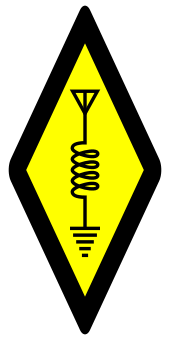MT63
MT63 is a digital radio modulation mode for transmission in high-noise situations developed by Pawel Jalocha SP9VRC. MT63 is designed for keyboard-to-keyboard conversation modes, on HF amateur radio bands.

Features and Attributes
MT63 distributes the encoding of each character over a long time period, and over several tones. This code and symbol spreading implementation is key to its robustness under less than ideal conditions. The MT63 mode is very tolerant of mistuning, as most software will handle 120 Hz tuning offsets under normal conditions.
| Mode | Symbol Rate | Typing Speed | Duty Cycle | Modulation | Bandwidth | ITU Designation |
|---|---|---|---|---|---|---|
| MT63-500 | 5 baud | 5.0 cps (50 wpm) | 80% | 64 x 2-PSK | 500 Hz | 500HJ2DEN |
| MT63-1000 | 10 baud | 10.0 cps (100 wpm) | 80% | 64 x 2-PSK | 1000 Hz | 1K00J2DEN |
| MT63-2000 | 20 baud | 20.0 cps (200 wpm) | 80% | 64 x 2-PSK | 2000 Hz | 2K00J2DEN |
MT63 Latency
One shortcoming of MT63 is that robustness is somewhat compromised with the short interleaver.
Latency (delay between transmitted characters) is more than 6 seconds with the long interleaver.
The typical character transmission delay is 12.8 seconds with Long Interleave Mode.
| Mode | ECC Mode | Latency (sec) |
|---|---|---|
| MT63 500 Hz | short | 12.8 |
| MT63 1K | short | 6.4 |
| MT63 1K | long | 12.8 |
| MT63 2K | short | 3.2 |
| MT63 2K | long | 6.4 |
| PSK31 | - | <1 |
Media
MT63 is seeing a resurgence in its popularity on shortwave with the VOA Radiogram[1] but the software used to encode the text is not using the Varicode that MT63 used in its original design.
Modern software that codes MT63, such as Fldigi, has opted for base128[2] that is essentially ASCII-7. However, the only interleaving options have become long and short, as the medium interleaving mode has become redundant.
MT63 has been mooted as a modulation format for Time Signal Stations, but the implied system does not use Varicode.[3]
See also
- Walsh code
- Varicode
- Radioteletype
- Shortwave radio
- PSK63
Related links
- "MT63 Technical Information", ZL1BPU website (archived 2008)
- "MT63", ZL1BPU website (archived 2008)
- BARTG site - British Amateur Radio Teledata Group
- Fldigi MT63
- MT63 mooted as a time transfer technology
